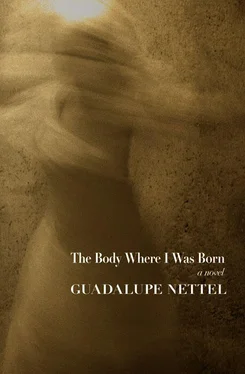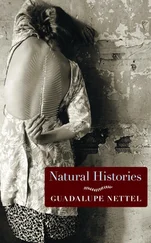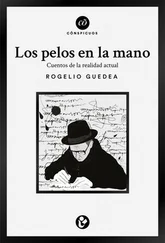Julie’s best friend — with whom I would have to compete for the attention of my benchmate — was named Céline Bottier. She wasn’t very conventional, you could say. At eleven and a half years old, her long and dark hair was peppered with gray and her face looked like it belonged to an older woman who was graced with a rather serious character. However, unlike me, Céline had a very high opinion of herself and treated Julie with admirable condescension. In homeroom, there were two other foreign girls, a Belgian and a New Zealander. Even though the Belgian was of Flemish origins, the New Zealander and I were the only ones who didn’t speak the language.
Weeks before leaving Mexico, my grandmother and mother had warned us to mind our manners in the school cafeteria since French children were extremely well-mannered and traditional. So when we entered the cantine for the first time, my brother and I were very nervous, as if facing an assembled jury that might decide to expel us — not only from La Maréchale but from French society. Fortunately, and to our delight, my mother and grandmother were misinformed. As soon as the snack tray with the cold cuts arrived on our first day, the kids swooped in on the meat slices with their dirty hands and, just like that — without cutting the slices up or putting them on a piece of bread — they stuffed them into their mouths, as if their hope was to store as much as possible in their stomachs. Beholding this spectacle, I felt deeply relieved; the French were not the ascetic and smug monsters they’d been made out to be, but regular people, ordinary, even primitive.
I have no doubt that my mother sought in Aix the institution that most resembled our school in Mexico. The percentage of atypical beings was equal, or maybe even higher. But still, as I said before, everything there seemed strange to me. On the one hand, there was the intrinsic Frenchness, and on the other the Freinet system and all its hurdles. The French wrote in a very round cursive using fountain pens with disposable cartridges, which held ink you could erase with transparent markers that had a sickening smell. They used commas instead of decimal points and different figures to represent mathematical operations. It took me months to understand that the functions my classmates were doing underneath the “little house” that looked like the square root symbol were actually just simple double-digit divisions. In Mexico, notebooks are unequivocal: graph paper for math and lined paper for language arts and social sciences. The space between the lines in the latter measures exactly one centimeter and this cannot be changed on a whim. In French notebooks, every page has squares and the space between the lines comes in two different sizes, and for indecisive people like me, knowing where to write presents a dilemma. In the Freinet system, unlike Montessori, there weren’t a lot of fun learning materials. It was just some flash cards with questions on different subjects. Another radical difference was that school days in France went until five p.m. Each student worked at his or her own pace, but there were restrictions. Every Monday, we had to set up a “contract” that specified the work we would complete during the week, and it was the teacher’s job to check that we fully adhered to our plans. Also on Mondays, we had meetings called “ Quoi de neuf ,” in which we could share something we wanted the rest of the class to know. Since I didn’t speak French, I was usually left out of these gatherings.
Our school had three yards where we played at recess. There was the main esplanade where each morning we stood in lines before going inside, and two other yards. It wasn’t written anywhere, but the students had decided that the biggest and deepest yard, a sloped and unpaved plot, was exclusively for playing marbles; the other square had traces of grass and was reserved for holding soccer matches. In France, they also thought it was a little weird for a girl to play soccer. I’d never played marbles and at first was inclined toward the sport of my childhood, but very soon I stopped playing for the same reasons that had made me give it up in Mexico. And so, gradually, I switched over to marbles, an activity I knew nothing about. The marble scene was run by Dimitri, a boy from the East who had an unmistakable aptitude for managing a casino. He was the one who gave me my first marble and a rough explanation of the rules accompanied by a lot of hand gestures. This was how I was able to hit the target and win the five other glass spheres that I would play with for the rest of the week. I remember the hurried atmosphere of the place, the jittery back-and-forth of the players, the crack of glass on glass, and the sound of glass rolling over the ground. Even though I have forgotten how much they were all worth, I remember the names of the different marble families: œil-de-chat, arc-en-ciel, plomb, neige . These words were also the first I learned in French. To my brother’s surprise — and to that of anyone who knows me — I turned out to be not so bad at this marble business (it doesn’t feel right to call it anything else), in which sight and precision play such an important role. Maybe Dimitri’s gift brought me luck. The point is, in just a few days, I managed to amass a considerable number of marbles of varying shapes and values. To store my new collection, I knit a wool pouch that soon grew dirty on the ground.
Another disconcerting aspect of French schooling caught us off-guard halfway through our first week. It was Wednesday at noon, and instead of heading to the cantine the kids all rushed out the front door with the same enthusiasm they showed every other day at five o’clock. My brother and I were stuck in this frenzy like people blocked by a protest march. We asked a teacher who spoke a few words of our language if something out of the ordinary was happening, and she tersely answered in textbook Spanish: “On Wednesdays, class finishes at midday. Your mother must know this.” According to her, we were getting picked up outside the school, just like everyone else. But Mom never came. The street became less and less populated and we grew used to the idea that we would have to wait for her at the school gate for five hours. One of the last mothers to arrive asked us if everything was all right. When she saw that we didn’t speak French, she asked again in Spanish. We told her what had happened and she brought us to her house for lunch.
Her name was Lisa and her son Benjamin was in the same grade as my brother. They lived in a very pretty part of the city, full of single houses that were small but charming. Every piece of their furniture was exotic and flush with the floor, like in illustrations from The Thousand and One Nights . She told us that she used to be married to a Moroccan man, her son’s father, but things didn’t work out between them. Now she was back living in France and much happier. The doorbell rang several times while she was talking and, through the half-open door, we saw another two or three people arrive who seemed to be her friends.
“In this home, Wednesdays are communal. I make couscous like I used to in Casablanca, and whoever wants can come share it with us.”
We sat down on some cushions on the floor to eat around a very short table. In the cantine I’d seen silverware used as spears, but here cuttlery was nowhere to be seen. The guests put their hands into the giant pot then brought them to their mouths. I was grateful for the invitation that had saved us from spending hours in front of the school. When we finished eating, Lisa served us all mint tea, then she lent me and my brother her phone to let our mother know where we were.
“If she can’t come, it’s no big deal. You can stay here until whenever.”
Читать дальше












